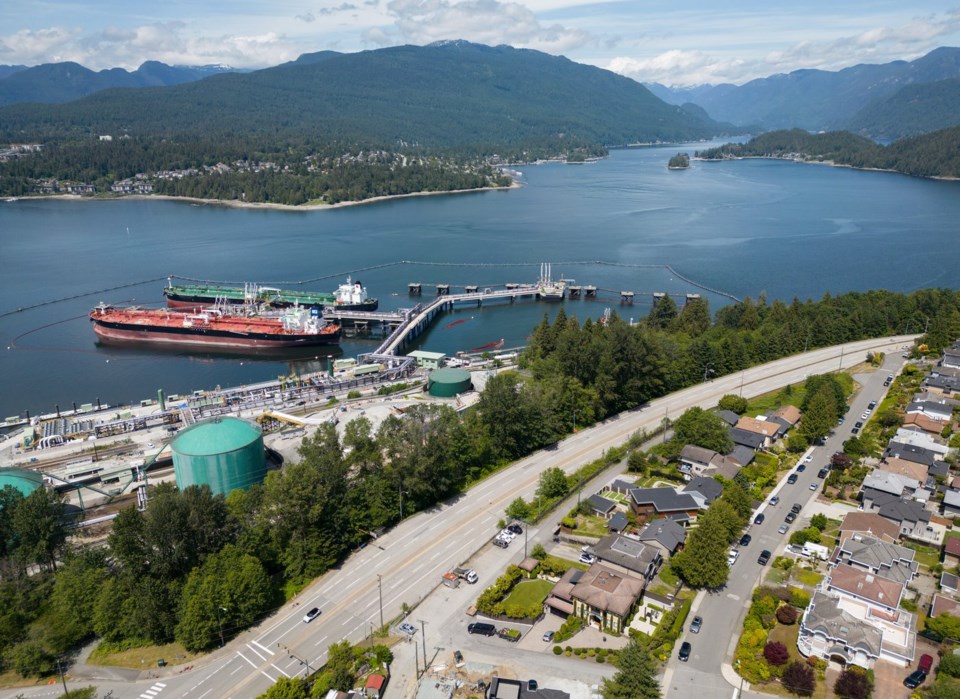CALGARY — The CEO of Crown-owned pipeline operator Trans Mountain Corp. says it could take on other market-expanding pipeline projects if necessary, but that it would be preferable for the private sector to take the lead.
Trade tumult in recent months with the United States — Canada's biggest customer for its crude oil — has intensified calls for Canada to build infrastructure that would allow its resources to flow to other global buyers.
When the expanded Trans Mountain pipeline began shipping Alberta crude to the B.C. Lower Mainland just over a year ago, oilsands producers were finally able to meaningfully access lucrative Asian markets.
Trans Mountain CEO Mark Maki said in an interview Friday there's an appetite for more pipeline egress to the Pacific coast and elsewhere.
"The U.S. is a great customer. It will always be a great customer, but diversification of markets for the country is important," he said.
He said Trans Mountain's owner — the Government of Canada — would prefer the private sector lead the way.
"If that can't happen, and it's in the national interest, Trans Mountain is here," Maki said.
His remarks came after Trans Mountain reported its operational and financial results for the first three months of 2025.
Since oil started flowing through the expansion in May of last year, 266 crude vessels have been loaded, and third-party information suggests the destinations have been split between the U.S. West Coast and Asia.
The expanded pipeline shipped an average of about 757,000 barrels per day during the quarter — below its capacity of 890,000 barrels per day.
Maki said if the pipeline were running full, western Canadian heavy crude would see a steeper price discount against the easier-to-refine light crude sold on the global market. That would eat into the margins of Alberta producers.
"You really don't want us 100 per cent full … What's important really is to keep a little bit of slack in the system," he said.
As of now, the supply of crude hasn't caught up with takeaway capacity.
"But when that happens, the crude differential blows out. And so having a little bit of wiggle room is important."
Trans Mountain said there are economical ways to boost the pipeline's capacity if needed, such as adding chemical agents to reduce friction, which would enable more crude to flow through the line. Other options could include adding pumping horsepower or pipe segments. Those projects could together add up to 300,000 barrels per day of capacity.
Trans Mountain said quarterly net income was $148 million, down from $158 million a year earlier.
Its earnings before interest, taxes, depreciation and amortization — a measure it says reflects the performance of its underlying business — were $568 million, compared to the $36 million it brought in a year earlier, before the pipeline expansion had started up.
During the quarter, $311 million was paid to its parent Canada TMP Finance Ltd., which is itself owned by the Canada Development Investment Corp. That consisted of $148 million in interest payments and $163 million in cash dividends.
The original Trans Mountain pipeline has been operating since the 1950s.
In 2013, U.S. energy company Kinder Morgan filed a proposal to expand it at a cost of $5.4 billion, touching off a contentious regulatory review process marked by protests and legal challenges.
Kinder Morgan suspended work in 2018 and shortly thereafter sold the pipeline to the federal government for $4.5 billion.
By the time the expansion project was completed, its cost had ballooned to $34 billion.
Maki said there's no hurry to bring Trans Mountain back into private hands.
He said the expanded pipeline should get a little more operating history under its belt so a potential buyer can ascribe the proper value to it. A dispute over the tolls customers pay to use the line, currently before the Canada Energy Regulator, also needs to be sorted out, he said.
There is also interest in potential Indigenous equity ownership in the line — when the time is right.
Trans Mountain is in a "transitional" year where it is starting to pay dividends and is continuing some of the cleanup work from the pipeline construction.
Next year will be a "much more normal" one, Maki said.
"And so really probably at that point and out would make sense to start thinking about that."
This report by The Canadian Press was first published May 30, 2025.
Lauren Krugel, The Canadian Press




